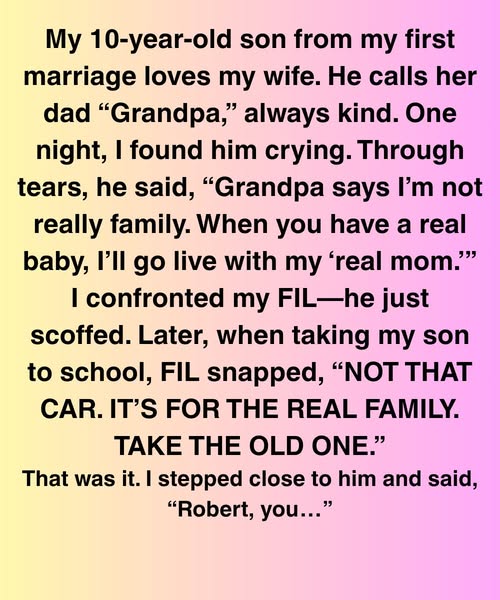
My 10-year-old son from my first marriage has always been the light of my life. When I remarried, I was nervous about how he would adjust, but to my relief, he quickly bonded with my wife. He calls her “Mom” without hesitation, and her father—his step-grandfather—became “Grandpa.” For a while, it felt like everything was falling into place.
But one night, I found my son quietly crying in his room. When I asked him what was wrong, his words broke my heart. Through tears, he whispered, “Grandpa says I’m not really family. He said when you and Mom have a real baby, I’ll have to go live with my ‘real mom.’” The pain in his voice was unbearable. No child should ever feel unwanted or less than.
I confronted my father-in-law, but instead of remorse, he scoffed. His dismissiveness cut deep, but I tried to stay calm for my son’s sake. Then one morning, as I was getting ready to take my boy to school, the situation exploded. My father-in-law barked, “NOT THAT CAR. IT’S FOR THE REAL FAMILY. TAKE THE OLD ONE.” That was the breaking point.
I stepped close, looked him straight in the eye, and said firmly, “Robert, you don’t get to decide who my family is. My son is my blood. He is loved, he is wanted, and he belongs here. If you can’t accept that, then you’re the one who doesn’t belong.” From that day on, I made it clear: love defines family, not bloodlines, not prejudice, and certainly not the bitterness of someone unwilling to open his heart.